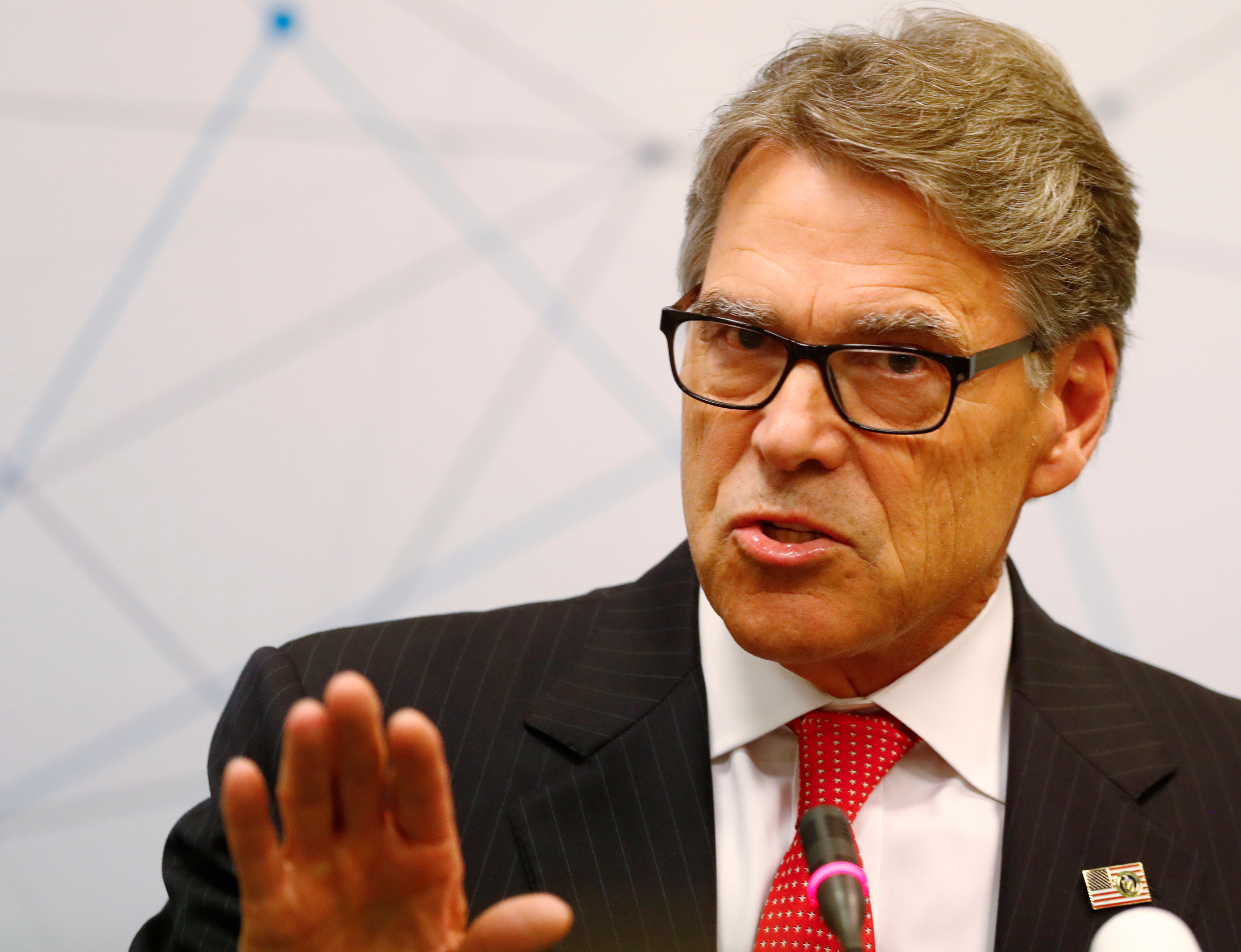How a myopic view of the Arctic hampers U.S. policy
Outgoing Energy Secretary Rick Perry's speech in Iceland shows that despite the Trump administration's newfound interest in the Arctic, it doesn't understand the region.

U.S. Energy Secretary Rick Perry, the genial former Texas governor, tends to be long on platitudes and short on substance.
Perry lived up to his reputation with his speech to the Arctic Circle Assembly in Reykjavik earlier this month, where he sounded more like a salesman for an oil and gas company than a government official offering a sensible vision for the future of the Arctic. (You can find the full speech below).
It turns out, he may soon make it official and go to work for a private energy company, the New York Times reported.
Perry has been implicated in the growing scandal about Trump pressuring Ukraine for political help and has already told the president he plans to resign.
This past spring, U.S. Secretary of State Mike Pompeo gave a speech in Finland titled “Sharpening America’s Arctic Focus” that did nothing of the kind. Pompeo portrayed the disappearance of sea ice as nothing more than a commercial opportunity.
He tried to cast the Arctic as simply the setting for a three-way struggle in which the United States, Russia and China find themselves wrestling for regional supremacy.
[Pompeo: Russia is ‘aggressive’ in Arctic, China’s work there also needs watching]
Perry gave a similar address in Iceland, though he mentioned energy more often and his references to China and Russia didn’t mention them explicitly.
The pattern among Trump administration officials is to look at the Arctic through a narrow lens — seeing it as a warehouse of resources to be exploited for economic gains, while ignoring the economic and environmental consequences of climate change.
With this lack of leadership, there is no awareness in Trump’s world that the Arctic stands at the forefront of climate change. There is a stubborn belief in the value of fossil fuels.
True to form, Perry paid no attention to coastal erosion, melting permafrost, rising sea temperatures and a host of other factors threatening the Arctic when he gave his vision of an abundant energy-rich future.
He treated the science, the social questions and the environmental research as irrelevant, described the melting of Arctic ice as an invitation for more drilling.
“By any measure, the Arctic region is brimming with the incredible opportunity of economics and its energy potential,” Perry said.
“When you think about one-third of the world’s undiscovered natural gas resources are located here — and we’re convinced that they can be responsibly explored — they can be developed for the benefit of Arctic peoples and communities and ultimately the world,” he told the Arctic Circle attendees in Iceland.
“Simply stated, we believe that the key to energy progress, to economic progress, to environmental progress is to allow the power of innovation to become the driver of national policies,” he said.
Who doesn’t believe in innovation?
Perry also said the U.S. is “reviving, not reviling” coal and nuclear energy plants, while becoming the largest world producer of oil and gas.
“Thanks to the power of innovation, we’re now producing energy more abundantly, more affordably, more cleanly, more efficiently and from a wider source of places and fuels than every before,” he said.
“I firmly believe that given the right policies the innovative energies of free nations and peoples can unleash unprecedented progress,” he said. “And that is why I can’t wait to see what the future holds for the U.S. and for the Arctic region.”
The refusal to take a broader view and recognize the need to reduce carbon emissions reflects poorly on the Trump administration and the United States.
What those who gathered in Iceland received from Perry were clichés and empty political phrases about freedom and innovation.
Perry may have thought it was profound to proclaim, “Tomorrow belongs to the North, and the future belongs to the free,” but that line could have come from a Hallmark greeting card.
It you take the time to really think about what the future holds, the myopic attitude represented by the Trump administration is a frightening proposition.
Dermot Cole can be reached at de*********@gm***.com.
The views expressed here are the writers’ and are not necessarily endorsed by ArcticToday, which welcomes a broad range of viewpoints. To submit a piece for consideration, email commentary (at) arctictoday.com.